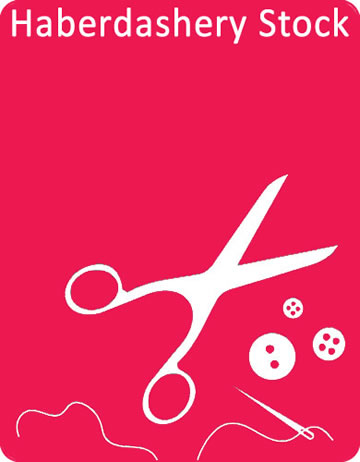We use cookies to make your experience better. To comply with the new e-Privacy directive, we need to ask for your consent to set the cookies. Learn more.
Demystifying Overlockers. A beginner's guide to Sergers
Help with threading an Overlocker
Threading needles
Loosen the tensions all the way down to zero when threading. This allows the thread to properly seat itself between the tension disks. Reset the tensions after threading is completed. You have to turn those dials...
Loosen the tensions all the way down to zero when threading. This allows the thread to properly seat itself between the tension disks. Reset the tensions after threading is completed. You have to turn those dials...
Keep it clean
Too much lint
Lint from the cut fabric builds up in the machine and if not removed, will cause problems, It can soak up the oil (which lubricates the machine) and get caught under the stitches and moving parts, Use a small brush to...
Lint from the cut fabric builds up in the machine and if not removed, will cause problems, It can soak up the oil (which lubricates the machine) and get caught under the stitches and moving parts, Use a small brush to...
General Overlock tips and helpful hints
Overlocker machines are essential for creating strong, professional-quality seams and finishing fabric edges. To get the best results and keep your machine running smoothly, follow these essential tips and troubleshooting advice.
Preventing Needle...
Overlock needles and special thread
Overlock Needles and Special Thread: Essential Considerations
When it comes to overlock sewing, using the right needles and threads is crucial for achieving high-quality, durable seams. Choosing the correct materials can make a significant difference...
Tell me more about overlockers...?
What is an overlocker, why use one, what can it do?
If you need to sew stretchy seams, use fabrics that fray or just want speedy sewing, you would love an overlocker (or Serger as it is known in the USA). Think of todays leisure wear...
If you need to sew stretchy seams, use fabrics that fray or just want speedy sewing, you would love an overlocker (or Serger as it is known in the USA). Think of todays leisure wear...
Why use a overlocker and not a sewing machine
Sewing machine or overlocker ?
You can achieve similar seam finishes on your sewing machine - by using an overlock stitch or close zig zag stitch. However, an overlocker does it quicker, neater and of course, in one-step. Todays overlockers...
You can achieve similar seam finishes on your sewing machine - by using an overlock stitch or close zig zag stitch. However, an overlocker does it quicker, neater and of course, in one-step. Todays overlockers...
Overlocking Terminology
A few of the words that you will hear are as follows:
Serger - this is the American term for Overlocker. Serging is therefore overlocking. Loopers - instead of bobbins, an overlocker has loopers. The threads that come from under the needle plate ...
Serger - this is the American term for Overlocker. Serging is therefore overlocking. Loopers - instead of bobbins, an overlocker has loopers. The threads that come from under the needle plate ...
What is differential feed
An overlocker without differential feed is as much use as a sewing machine without a needle..!
Differential feed on an overlocker has two feeds, the front feed and read feed. They have the ability to move the fabric under the presser...
Explain to me about the types of overlock stitches
5-THREAD OVERLOCK:
A 5-thread stitch is ideal for sewing and finishing woven fabrics. It is the industry standard. It consists of a straight seam (chain stitch seam) and 3-thread overcast stitch. A 3- or 4-thread overcast can be used...
A 5-thread stitch is ideal for sewing and finishing woven fabrics. It is the industry standard. It consists of a straight seam (chain stitch seam) and 3-thread overcast stitch. A 3- or 4-thread overcast can be used...
Yes I know, but what is a cover stitch?
1
Please, mind that only logged in users can submit questions





